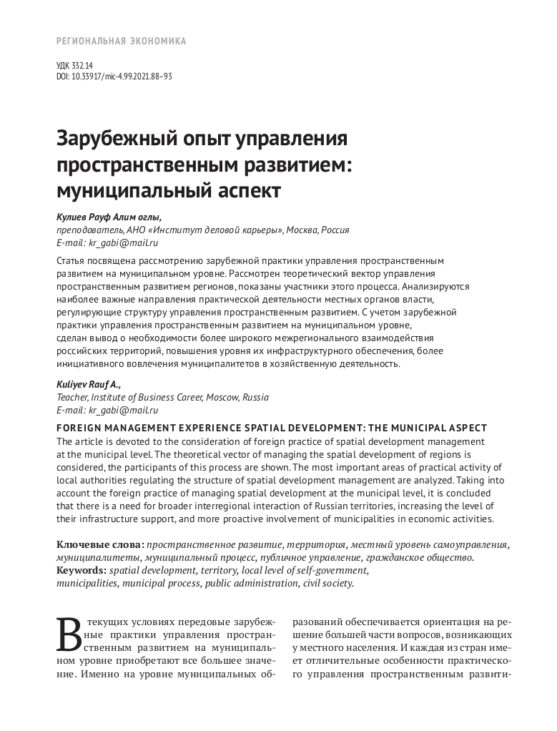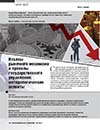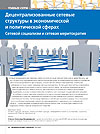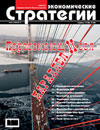Foreign management experience spatial development: the municipal aspect
DOI: 10.33917/mic-4.99.2021.88-93
The article is devoted to the consideration of foreign practice of spatial development management at the municipal level. The theoretical vector of managing the spatial development of regions is considered, the participants of this process are shown. The most important areas of practical activity of local authorities regulating the structure of spatial development management are analyzed. Taking into account the foreign practice of managing spatial development at the municipal level, it is concluded that there is a need for broader interregional interaction of Russian territories, increasing the level of their infrastructure support, and more proactive involvement of municipalities in economic activities.









